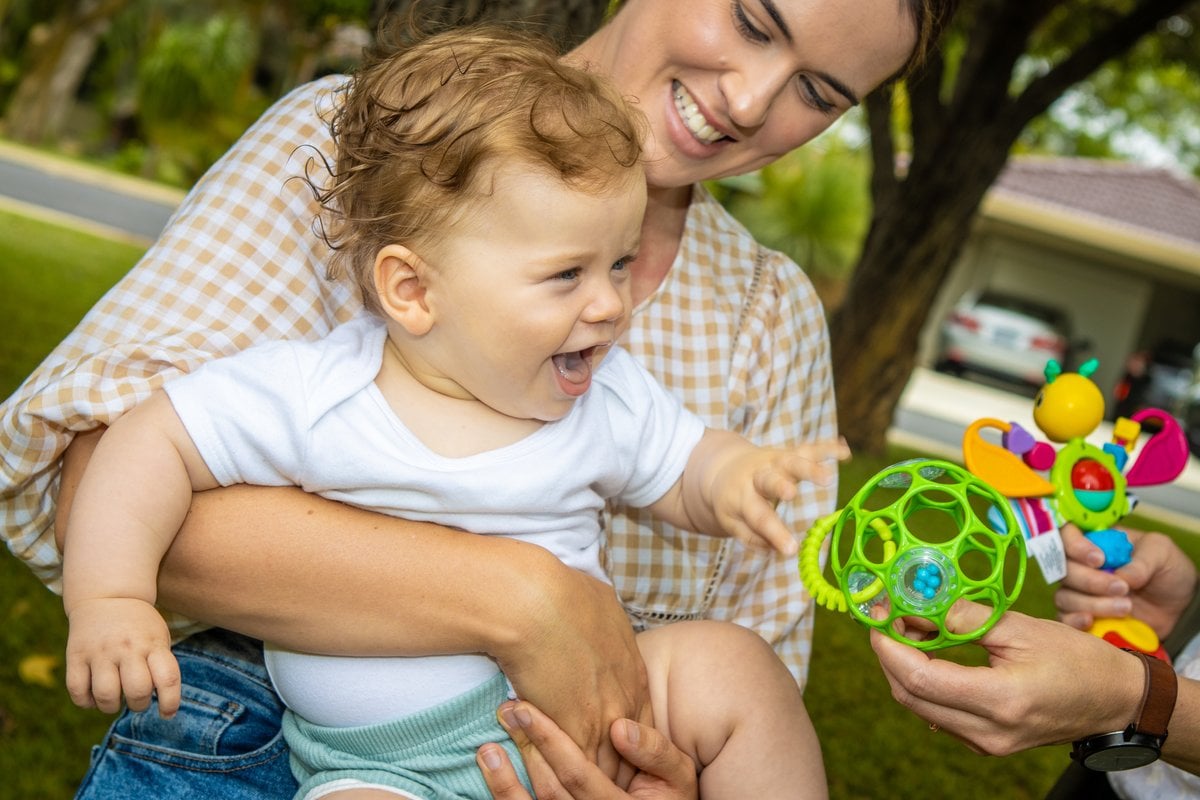

Like a lot of new parents, Ali Simmons was worried about the possibility of her baby son Leonard having a food allergy.
“It seems like so many children have allergies these days,” Ali tells Mamamia. “We seem to talk about food allergies a lot at my mothers’ group.”
In fact, Australia has the world’s highest confirmed rate of food allergy in children. It’s estimated that 10% of babies have a food allergy.
Researchers are still trying to work out exactly why the rate of food allergy is rising, but one thing has become clear: feeding babies the common allergy causing foods before they turn one can help prevent food allergies.
These foods should be introduced to babies one at a time, and once introduced, should continue to be given to babies at least twice a week.
Listen to Mamamia's parenting podcast, This Glorious Mess. Post continues below.
This message is now being passed on to all parents.
“My child health nurse told me to introduce all foods, including the common allergy causing foods,” Ali says. “She directed me to the Nip allergies in the Bub website, which I found really helpful.”
Dr Preeti Joshi is a specialist in paediatric allergy and immunology at The Children’s Hospital, Westmead. Mamamia asked her some of the most common questions that parents have about food allergies.
Is it really possible for parents to reduce the risk of their child having a food allergy?
There is good evidence that introducing peanut before 12 months of age reduces the development of peanut allergy.




























































































